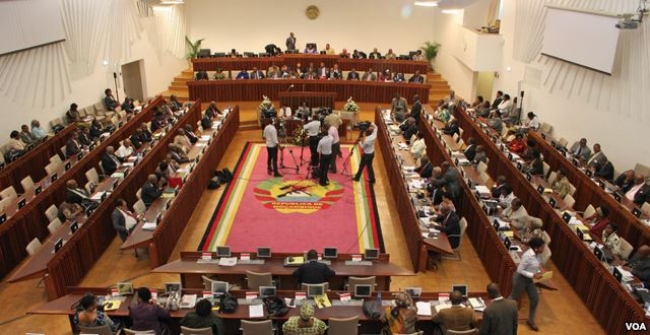Mozambique: Mondlane wants party to participate in political dialogue
Assembly eliminates overlapping terms of office

File photo: RM
The Mozambican parliament, the Assembly of the Republic, on Thursday amended two laws on municipalities to prevent the terms of office of incoming mayors and municipal assemblies overlapping with the terms of their predecessors.
The legislation had been so badly drafted that there was a risk that the mayors and assemblies deriving from the 10 October municipal elections would be sworn into office before the terms of the outgoing mayors and assemblies had expired.
The law on municipalities passed in July stated that the assemblies and mayors must take office within 15 days of the validation and proclamation of the election results by the Constitutional Council.
The Council proclaimed the results on 14 November, and so, under the July law, all the new mayors and assemblies should be sworn into office by 29 November. However, the term of office of the current mayors and assemblies does not expire until 6 February 2019.
The 15 day period between the proclamation of the definitive results and the assumption of office by the new mayors was never a problem before, because in the previous municipal elections it had taken much longer to count the votes.
This was partly because there were two ballot papers farther than one, partly because all votes declared invalid at the polling stations had to be re-assessed by the National Elections Commission (CNE) in Maputo, and partly because of the long delays between the initial count at the polling stations, the district count, the provincial count, the CNE count and the Constitutional Council’s validation.
The new legislation streamlines the entire procedure. The mayor is now automatically the head of the list of whichever party wins most votes – so there is only one ballot paper. The invalid votes are only reassessed, if they are protested at the polling stations (and only a handful are). Alleged electoral offences are now judged by district and city courts, which also speeds matters up.
The amendments passed by the Assembly solve the problem by removing the 15 day period, and simply stating that the incoming mayors and assemblies take office “within seven days” of the end of the preceding term of office.
In the event that a Municipal Assembly is dissolved and new elections are held, the new Assembly takes office within seven days of the validation of the election results by the Constitutional Council.
The amendments were uncontroversial and were passed unanimously.












Leave a Reply
Be the First to Comment!
You must be logged in to post a comment.
You must be logged in to post a comment.